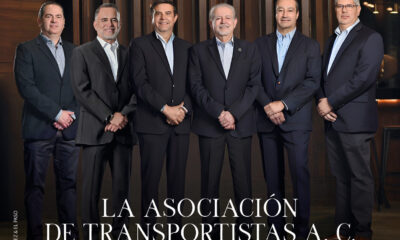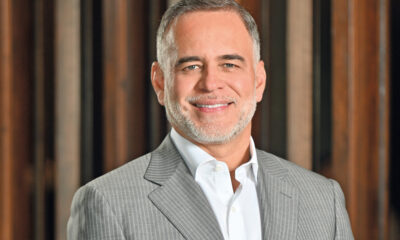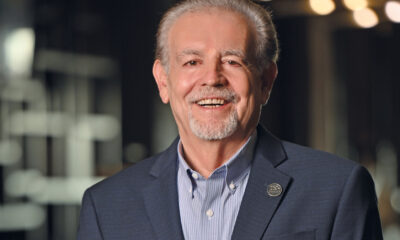Teen World
¡Ama quién eres llamado a ser!
Publicado
2 años antesel
Por
Luz María Sotelo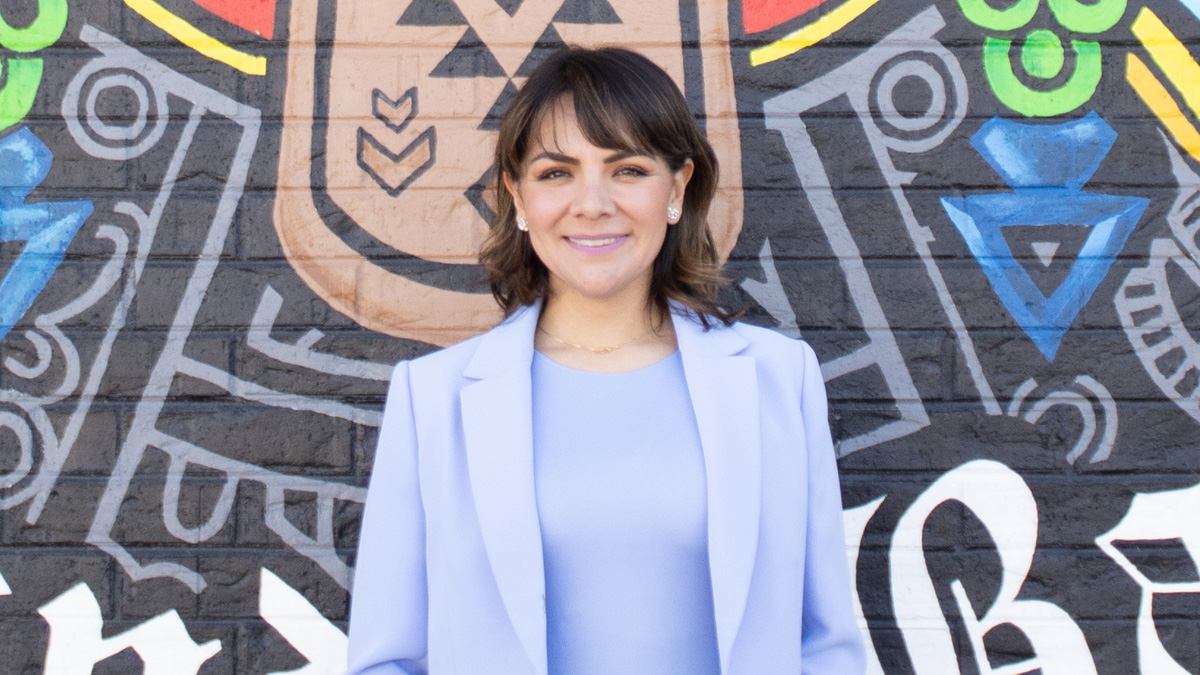
Evelyn Corral nos cuenta sobre su vida y su gran proyecto, Field Operations Boys & Girls Clubs of El Paso
La licenciada Evelyn Corral es la actual directora de Field Operations Boys & Girls Clubs of El Paso, la cual fundó tras su paso en las aulas de El Paso como maestra bilingüe.
Su ejemplo a seguir
Mi papá es un soñador y siempre lo ha sido, se sentaba en el puente El Chamizal y miraba hacia El Paso con ojos brillantes y decía “un día estaré ahí”, luego con 60 dólares y una novia embarazada (mi mamá), se dirigieron a Los Ángeles, California, recuerda Corral, quien agrega que su resiliencia era evidente.
Asegura admiraba a sus abuelas y a sus padres, su determinación y los sacrificios que hicieron. “Esta base construyó mi carácter y supe que tenía la tarea de hacer que mi vida valiera la pena, haciendo una diferencia, (pero) simplemente no sabía cómo sería eso”, dice.
Formación
Evelyn Corral cuenta a Visionarias que sus padres decidieron mudarse a El Paso cuando a ella le faltaban dos semanas para terminar cuarto grado. “Cuando llegué, la maestra me pidió que me presentara a la clase y explicará en inglés por qué nos habíamos mudado, y no pude hacerlo, me sentí avergonzada y el resto de la clase se rió, por lo cual tenía miedo de entrar al quinto grado”.
“Mi maestra de quinto grado, la señorita Keating, marcó un antes y un después en mi vida escolar. Ella me validó, creyó en mí y mostró un interés genuino en crear un ambiente seguro en el aula. Después de quinto grado, avancé a clases más avanzadas en la secundaria, me gradué entre los diez mejores de mi clase en la preparatoria y obtuve mi licenciatura en Estudios Multidisciplinarios con énfasis en Música, Comunicaciones y Humanidades de la Universidad de Texas en El Paso (UTEP)”, menciona. Nuestra entrevistada además se certificó como maestra en el estado de Texas en Educación Bilingüe y completó su maestría en Currículo e Instrucción en la Universidad Concordia en Portland, Oregón.
Comienzos
“Mi primer trabajo como maestra fue enseñar en un aula bilingüe de cuarto grado, el mismo grado en el que estaba cuando llegué a El Paso. En ese momento supe que estaba enseñando a niños que estaban en la misma situación en la que yo estuve, y tenían un lugar especial en mi corazón”, dice.
Agrega que después de 4 años pasó a enseñar a educadores sobre prácticas de lectura y aprendizaje activo en grados de kinder a quinto. Luego, fue contratada como especialista en Tecnología Educativa, puesto en el que brindó desarrollo profesional a nivel de distrito para maestros de grados K-12, administradores y consejeros, fue entonces que sintió el llamado, “di un salto de fe y me aventuré en lo que hago ahora, directora de Field Operations Boys & Girls Clubs of El Paso”.
Su misión
Sobre Field Operations Boys & Girls Clubs of El Paso nos cuenta que su misión es capacitar a todos los jóvenes, especialmente a aquellos que más lo necesitan, para que alcancen su máximo potencial como ciudadanos productivos, cariñosos y responsables. “A diario, vemos las dificultades que enfrentan nuestros niños, y hacemos nuestro mejor esfuerzo para cerrar esas brechas”.
“Buscamos cerrar la brecha de la pobreza educativa y proporcionar oportunidades que cambiarán el futuro de muchos niños en nuestra ciudad”, dice.
Actualmente, brindan servicios a cinco distritos escolares y cuentan con 13 ubicaciones de club, todas gratuitas para las familias a las que sirven.
“Queremos ser como el sol de la mañana, brillando cada vez más hasta la plena luz del día”.
Proverbios 4:18
Mensaje a mujeres visionarias
A todas nuestras lectoras, Evelyn les dice, “¡ama quién eres llamado a ser! Algunas cosas que ves como imperfecciones pueden ser lo que otros necesitan. Algunas de las personas más maravillosas son aquellas que no encajan, ¡Sé disciplinado y recuerda tener límites! No todos necesitan saber todo acerca de ti. Ve el rechazo como una reorientación. El mundo necesita más cuentos, soñadores, agentes de cambio y personas que tomen acción ¡sé valiente y actúa!”.
“El mundo necesita más cuentos, soñadores, agentes de cambio y personas que tomen acción ¡sé valiente y actúa!”
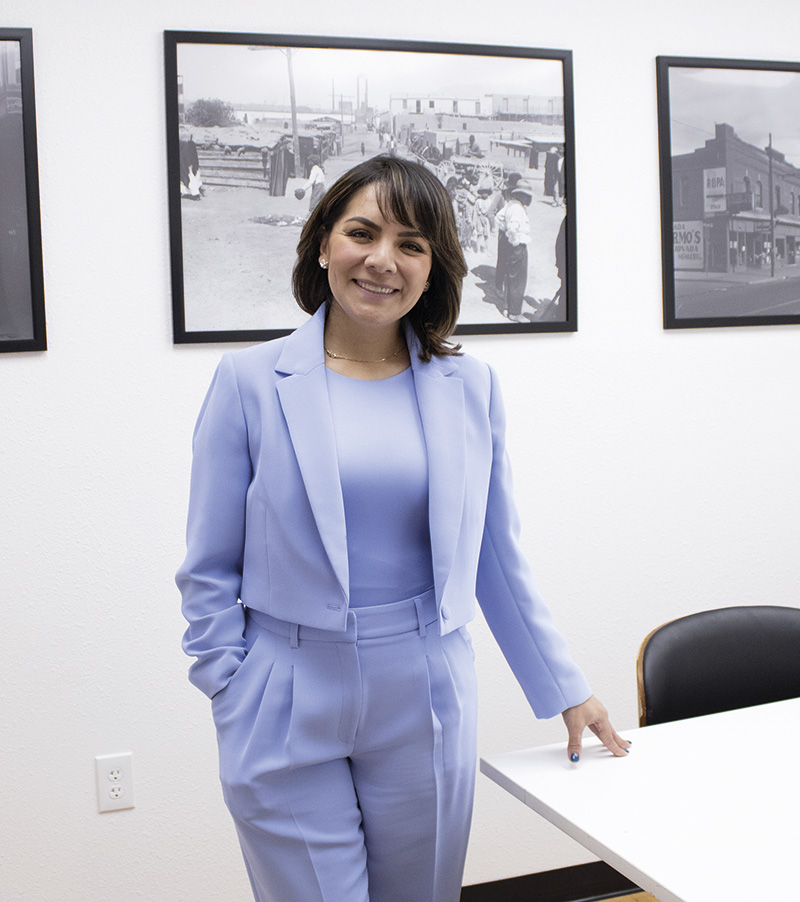
Love who you are called to be!
Evelyn Corral tells us about her life and her fabulous project, Field Operations Boys & Girls Clubs of El Paso
Evelyn Corral is the current director of Field Operations Boys & Girls Clubs of El Paso, which she founded after her time in the classrooms of El Paso as a bilingual teacher.
An example to follow
“My dad is a dreamer and always has been; he would sit on the El Chamizal bridge and look towards El Paso with bright eyes and say, ‘One day I will be there,’ then with 60 dollars and a pregnant girlfriend (my mother), they headed to Los Angeles, California”, recalls Corral, who adds that his resilience was evident.
She admired her grandmothers and parents, their determination, and their sacrifices. “This foundation built my character, and I knew I had the task of making my life worthwhile, making a difference, (but) I just didn’t know what that would look like,” she says.
Education
Evelyn Corral tells Visionarias that her parents decided to move to El Paso when she was two weeks away from finishing fourth grade. “When I arrived, the teacher asked me to introduce myself to the class and explain in English why we had moved, and I couldn’t do it; I felt embarrassed, and the rest of the class laughed, so I was afraid to enter the fifth degree.”
“My fifth-grade teacher, Miss Keating, marked a before and after in my school life. She validated, believed in me, and showed a genuine interest in creating a safe classroom environment. After fifth grade, I advanced to more advanced classes in middle school, graduated in the top ten of my high school class, and earned my bachelor’s degree in Multidisciplinary Studies with an emphasis in Music, Communications, and Humanities from the University of Texas at El Paso ( UTEP)”, she mentions. Our interviewee also became certified as a teacher in bilingual education in Texas and completed her master’s degree in curriculum and instruction at Concordia University in Portland, Oregon.
Beginnings
“My first job as a teacher was teaching in a fourth-grade bilingual classroom, the same grade I was in when I arrived in El Paso. At that moment, I knew I was teaching kids in the same situation I was in, and they had a special place in my heart,” she says.
She adds that after four years, she went on to teach educators about reading practices and active learning in grades kindergarten through fifth. Later, she was hired as an Educational Technology Specialist, a position in which she provided district-level professional development for K-12 teachers, administrators, and counselors. Then, she felt the call, “I took a leap of faith and ventured into what I do now, director of Field Operations Boys & Girls Clubs of El Paso.”
Your mission
Field Operations Boys & Girls Clubs of El Paso tells us that their mission is to empower all young people, especially those who need it most, to reach their full potential as productive, loving, and responsible citizens. “Every day, we see our children’s difficulties, and we do our best to close those gaps.”
“We seek to close the educational poverty gap and provide opportunities that will change the future of many children in our city,” she says.
They currently serve five school districts and have 13 club locations, all free to the families they serve.
“We want to be like the morning sun, shining brighter and brighter until full daylight.”
Proverbs 4:18
Message to visionary women
To all our readers, Evelyn says, “Love who you are called to be! Some things you see as imperfections may be what others need. Some of the most wonderful people are those who don’t fit in. Be disciplined, and remember to have boundaries! Not everyone needs to know everything about you. See rejection as a reorientation. The world needs more stories, dreamers, agents of change, and people who take action. Be brave and act!”
“The world needs more stories, dreamers, agents of change, and people who take action. Be brave and act!”
Te puede interesar

Más allá de los retos sociales, el corazón del mexicano se distingue por su amabilidad
Septiembre es un mes especial para nuestro país. Recordamos la independencia, celebramos en familia y compartimos momentos que nos recuerdan la riqueza de nuestra unión. En cada reunión,en cada gesto de cercanía, se refleja lo que realmente distingue a los mexicanos: nuestra calidez y generosidad.
Donde quiera que vayas encontrarás personas dispuestas a tenderte la mano. Aunque México ha enfrentado tiempos difíciles, hay algo que permanece intacto: el ADN del mexicano. Somos un pueblo amable, respetuoso, hospitalario, leal y siempre dispuesto a compartir lo que tiene, por poco que sea.
Esta esencia no surge de la nada. Las generaciones pasadas han transmitido valores como la bondad, la solidaridad y el respeto, sembrando en los jóvenes la importancia de ayudar a los demás. Así, los buenos ciudadanos no solo existen: están presentes y se multiplican en cada comunidad.
Es cierto que la vida actual es acelerada y muchas veces parece que predomina lo contrario. Sin embargo, si miramos con más atención, descubriremos a esas personas que en los momentos más difíciles nos brindan apoyo, que con un simple gesto cambian un mal día y que nos recuerdan que aún somos un país donde los valores humanos tienen fuerza.
México no solo es rico en cultura, tradiciones y paisajes; su mayor riqueza está en su gente. Ser mexicano es ser buen ciudadano, y gracias a millones de hombres y mujeres que viven estos valores, nuestro país sigue siendo un lugar digno para vivir y compartir.
¡VIVA MEXICO!
Mexicans: Good Citizens
Beyond social challenges, the heart of the Mexican people is distinguished by kindness.
September is a special month for our country. We remember independence, celebrate with family, and share moments that remind us of the richness of our unity. In every gathering, in every gesture of closeness, what truly distinguishes Mexicans shines through: our warmth and generosity.
Wherever you go, you’ll find people willing to lend you a hand. Although Mexico has faced difficult times, one thing remains intact: the DNA of the Mexican people. We are a kind, respectful, hospitable, loyal people, always willing to share what we have—no matter how little it may be.
This essence did not come from nowhere. Past generations have passed down values such as kindness, solidarity, and respect, planting in young people the importance of helping others. In this way, good citizens not only exist—they are present and multiplying in every community.
It’s true that today’s life is fast-paced, and many times it seems the opposite prevails. However, if we look more closely, we’ll find those people who offer support in the most difficult moments, who with a simple gesture can change a bad day, and who remind us that we are still a country where human values remain strong.
Mexico is not only rich in culture, traditions, and landscapes; its greatest wealth is its people. To be Mexican is to be a good citizen, and thanks to the millions of men and women who live out these values, our country continues to be a place worthy of living in and sharing.
¡VIVA MÉXICO!

Utilicemos los talentos y dones que nos fueron depositados y hagamos que funcionen para llegar al lugar que está diseñado para nosotros
Aprovechar nuestra juventud no sólo implica diversión, también conlleva un tiempo de siembra, y esta no únicamente se relaciona con dinero, hay cosas que debemos atesorar intensamente como: el tiempo, la salud, la paz, la familia, las buenas compañías y los momentos.
Si nos fijamos y volvemos a leer, todas ellas son cosas que no se pueden adquirir en ningún comercio, son cosas que sólo están y que a veces nos pasan desapercibidas, todo lo demás como: el éxito, el dinero, la pareja ideal, la carrera u oficio de tus sueños, llegará por añadidura.
La juventud no está peleada con las buenas decisiones, es verdad que todos tenemos derecho a equivocarnos y a ir aprendiendo de los errores, pero debemos de evitar a toda costa equivocarnos con nosotros mismos, es por ello que debemos de aprovechar nuestra juventud para irnos construyendo a nosotros mismos, empezando por nuestro cuerpo ya que es el lugar que habitaremos el resto de nuestra vida, cuidemos de él en la medida de lo posible a través de la comida y el ejercicio, hay que hacerlo no únicamente por cuestión de apariencia física sino porque así estaremos construyendo nuestra autonomía, respetemoslo y dignifiquémoslo cuidando de él alejándolo de cualquier cosa que pueda dañarlo.
También hay que alimentar nuestra mente con pensamientos que edifiquen, que nos impulsen y que nos hablen de victoria. El mundo ya está demasiado lleno de cosas negativas como para enfocarnos en ellas, ahora y sin que sea menos importante, cuidemos de nuestra alma manteniendo una buena relación con aquello en lo que creamos firmemente, pongamos un ancla en nuestras metas y proyectos y no permitamos que los vientos fuertes de la vida nos muevan, pongamos nuestra fe en quien nos creó y dejemos que la vida nos sorprenda.
No seamos tan duros con nosotros mismos, tratémonos con amor y paciencia pues cada uno estará viviendo su propio proceso para llegar a su destino, aprovechemos la juventud de la mano de los talentos y dones que fueron depositados en nosotros y hagamos que funcione a nuestro ritmo sin comparaciones porque todos sin distinción llegaremos al lugar que está diseñado para nosotros.
P.D. Cada estación tiene sus propios retos, pero en la juventud es donde hechas a la mochila las armas con las que te defenderás el resto de tu vida. ¡Aprovéchala!.
Making the Most of My Youth
Let’s use the talents and gifts placed within us and make them work to reach the place designed for us.
Making the most of our youth isn’t just about having fun — it also involves a season of sowing. And this sowing isn’t only about money; there are things we must treasure deeply, like: time, health, peace, family, good company, and meaningful moments.
If we take a closer look and read that again, we’ll notice that all of these are things that can’t be bought anywhere — they simply exist, and we often take them for granted. Everything else — success, money, the ideal partner, your dream career or trade — will come as a result.
Youth doesn’t have to be at odds with good decisions. It’s true that we all have the right to make mistakes and to learn from them, but we must avoid, at all costs, making mistakes that harm ourselves. That’s why we need to take advantage of our youth to build ourselves up — starting with our bodies, because that’s the place we’ll inhabit for the rest of our lives.
Let’s care for it as much as we can through healthy food and exercise — not just for physical appearance, but because this builds our independence. Let’s respect and dignify our bodies by keeping them away from anything that might harm them.
We also need to nourish our minds with thoughts that uplift us, push us forward, and speak of victory. The world is already filled with negativity — we don’t need to add more to it. And just as importantly, let’s care for our souls by maintaining a good relationship with what we firmly believe in. Let’s anchor ourselves in our goals and projects and not allow the strong winds of life to shake us. Let’s place our faith in the One who created us — and allow life to surprise us.
Let’s not be so hard on ourselves. Treat yourself with love and patience, because everyone is living their own process on the way to their purpose.
Let’s make the most of our youth, together with the talents and gifts that have been placed in us — and let’s make them work at our own pace, without comparisons. Because we will all, without exception, arrive at the place that was designed just for us.
P.S. Every season has its own challenges — but youth is when you pack your backpack with the weapons, you’ll use to face the rest of your life. Make the most of it!.
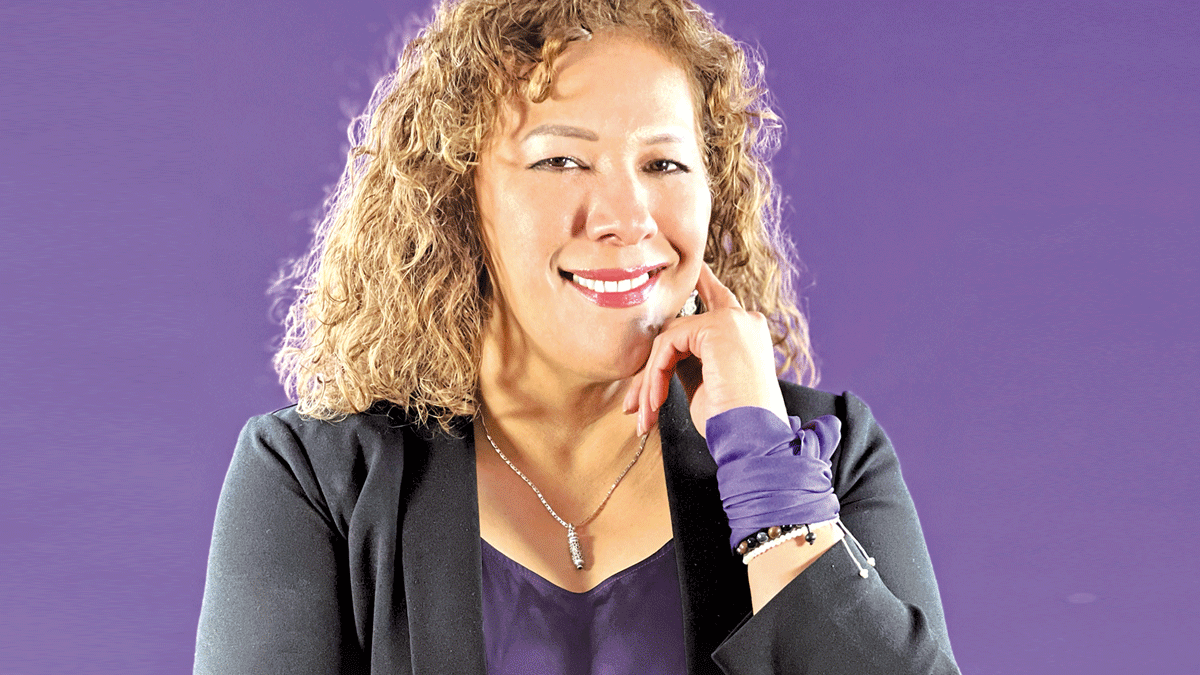
Teniendo como sello particular el arte, la activista ha dejado huella por casi tres décadas en la defensoría de los derechos de la mujer y las niñas
Activista, feminista y defensora de las mujeres y las niñas desde hace 26 años, así como fundadora de Cultiva: Arte, Comunidad y Equidad A. C., que tiene como objetivo dar oportunidades de superación a personas en situación de vulnerabilidad, es como presenta Visionarias a Verónica Corchado, juarense distinguida e inspiración para quienes buscan una nueva perspectiva de la vida.
Corchado Espinoza ha dedicado su tiempo y esfuerzo a, desde su trinchera, velar por la seguridad de las mujeres y el resto de la sociedad fronteriza, está a favor de la cultura, la no violencia y la paz, para lo cual trabaja con otras organizaciones que le ayuden a cumplir el cometido.
“Eh estado siempre observando cómo se mueve el tema de la violencia en los diferentes espacios”, nos comenta quien en el suroriente de Juárez es un rostro conocido a través del espacio ecológico de adobe llamado La Promesa, un proyecto cultural en colaboración con la artista internacional mexicana, Teresa Margolles, donde se hace arte y se trabaja con mujeres víctimas de abuso en cualquiera de sus versiones.
En La Promesa también tienen espacio los menores, quienes con talento y creatividad elaboran arte, mismo que tras ser expuesto les da la inspiración para no caer en las garras de la violencia y buscar un mejor futuro.
Pero el trabajo de Verónica va más allá de buscar y generar sus propios recursos, ella junto a un grupo de colectivos se encarga de atraer presupuestos y oportunidades para otros que también quieren poner su granito de arena y generar mejores condiciones para los menos afortunados.
Corchado asegura que trabajar por otras personas para mejorar su calidad de vida es lo suyo.
Servició público
El trabajo destacado de esta visionaria, así como la experiencia acumulada, el apoyo de organizaciones y académicas, además del alcalde de ese momento, Armando Cabada, llevó a Verónica a ser la primera directora del Instituto Municipal de la Mujer, donde gestionó una estrategia integral de prevención y atención de la violencia, que a su vez concretó la construcción del edificio morado en el Centro Histórico de Ciudad Juárez, una red de baños públicos, y articuló las dependencias para empujar un corredor seguro para las mujeres.
“Por primera vez en la historia después de tener muchos años de gestionar un espacio de atención por nosotras (activistas), se hizo la gestión a través de un proyecto multinivel para crear una especie de estrategia de prevención en el Centro de la ciudad con una infraestructura, la primera infraestructura que debería ser una pena para nosotras… La primera infraestructura de atención después de cientos de víctimas de feminicidio”, menciona para quien parte de su trabajo es convencer a las personas agredidas de denunciar, un acto que en su mayoría resulta difícil.
“Al final del día, si logramos que una mujer que padece violencia hoy, y ahorita funciona el 911 de manera adecuada y la podemos referenciar a la Fiscalía, se genera su expediente, se le asigna un ministerio público, se le conduce cómo generar su denuncia y hay un seguimiento, esa mujer se siente defendida, va a creer en las instituciones”, afirma.
Precisamente, parte de su trabajo, asegura, también es que las personas crean en las autoridades, reivindicar el servicio público, así como poner atención y prevenir la violencia dentro de las familias, lo cual le llena de orgullo y emoción, sentimientos que espera replicar cuando las siguientes generaciones superen en conocimiento y práctica lo que ella en años a trabajado en beneficio de la comunidad.
“Si no somos capaces de defender a las niñas y los niños no somos capaces de nada”
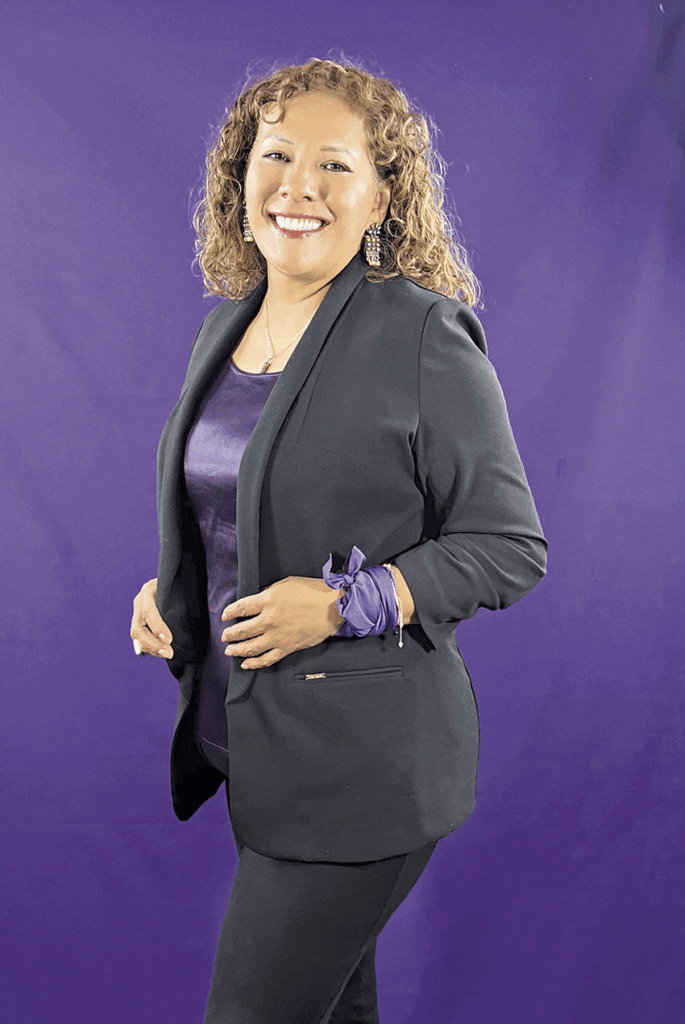
Veronica Corchado
With art as her distinctive hallmark, this activist has made a mark for nearly three decades defending the rights of women and girls.
Activist, feminist, and advocate for women and girls for 26 years, Veronica Corchado is also the founder of Cultiva: Arte, Comunidad y Equidad A.C., an organization aimed at offering opportunities for people in vulnerable situations to overcome adversity. Visionarias introduces Corchado, a distinguished native of Ciudad Juarez and an inspiration to those seeking a new perspective on life.
Corchado Espinoza has dedicated her time and energy to safeguarding women and the broader border community from her own front lines. She stands for culture, non-violence, and peace, and works with other organizations that support these goals.
“I’ve always observed how the issue of violence moves through different spaces,” she tells us. In the southeastern part of Juarez, she is a well-known face through La Promesa, an adobe ecological space. This cultural project, in collaboration with internationally renowned Mexican artist Teresa Margolles, uses art to work with women who have experienced abuse in any form.
La Promesa also welcomes children, who channel their creativity and talent into art—art that, once exhibited, inspires them to resist the pull of violence and strive for a better future.
But Veronica’s work goes beyond creating and managing her own resources. Together with a collective of organizations, she brings in funding and opportunities for others who want to contribute and improve conditions for the less fortunate.
Corchado believes that working to improve other people’s lives is her true calling.
Public Service
Veronica’s outstanding work, along with her accumulated experience, the support of academic institutions and organizations, and the backing of then-mayor Armando Cabada, led her to become the first director of the Municipal Institute for Women. There, she developed a comprehensive strategy for violence prevention and victim care, which led to the construction of the iconic Purple Building in the historic center of Ciudad Juarez, a network of public restrooms, and the coordination of various agencies to establish a safe corridor for women.
“For the first time in history—after many years of advocating for a care space by us activists—a multi-level project was carried out to create a kind of prevention strategy in the city center with infrastructure. The first infrastructure—though it should be a source of shame for us—of its kind for care, after hundreds of victims of femicide,” she remarks.
Part of her work involves encouraging survivors to report abuse, something that is often difficult to do.
“At the end of the day, if we manage to support just one woman suffering violence, and 911 functions properly, and we can refer her to the prosecutor’s office, her case is filed, a public prosecutor is assigned, she is guided on how to file a report, and there is follow-up—that woman will feel defended. She’ll believe in the institutions,” she says.
Indeed, she adds, part of her mission is to restore people’s trust in public authorities, to reclaim public service, and to focus on preventing violence within families. These are sources of pride and emotion for her—feelings she hopes to see reflected in future generations, as they surpass her in knowledge and action for the benefit of the community.
“If we are not capable of defending girls and boys, we are not capable of anything.”






